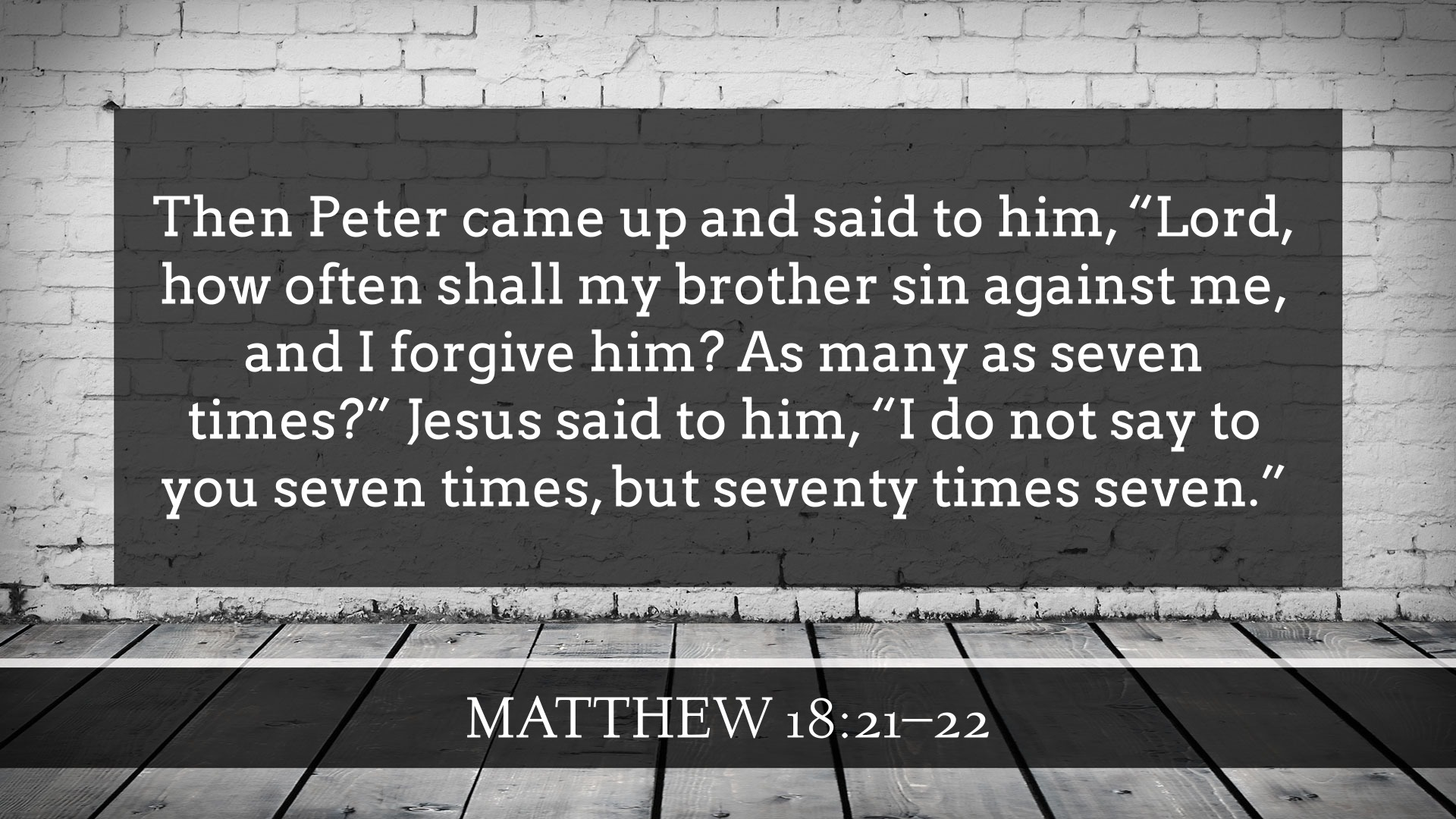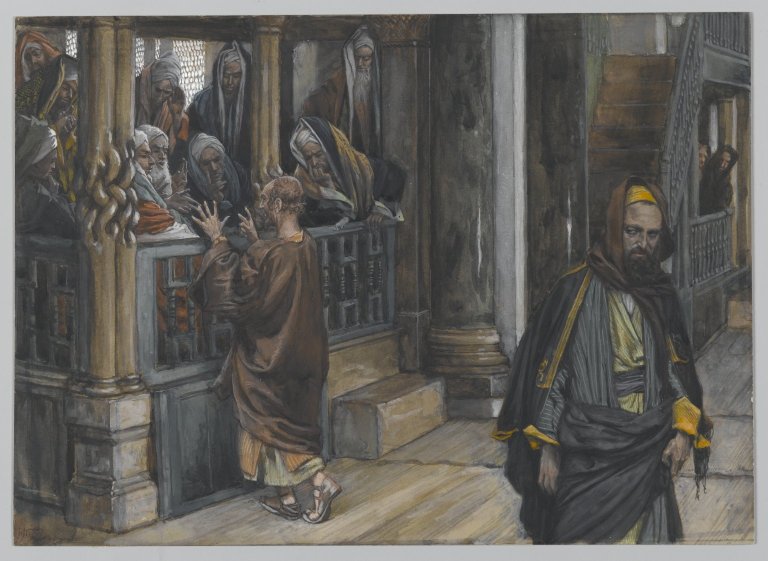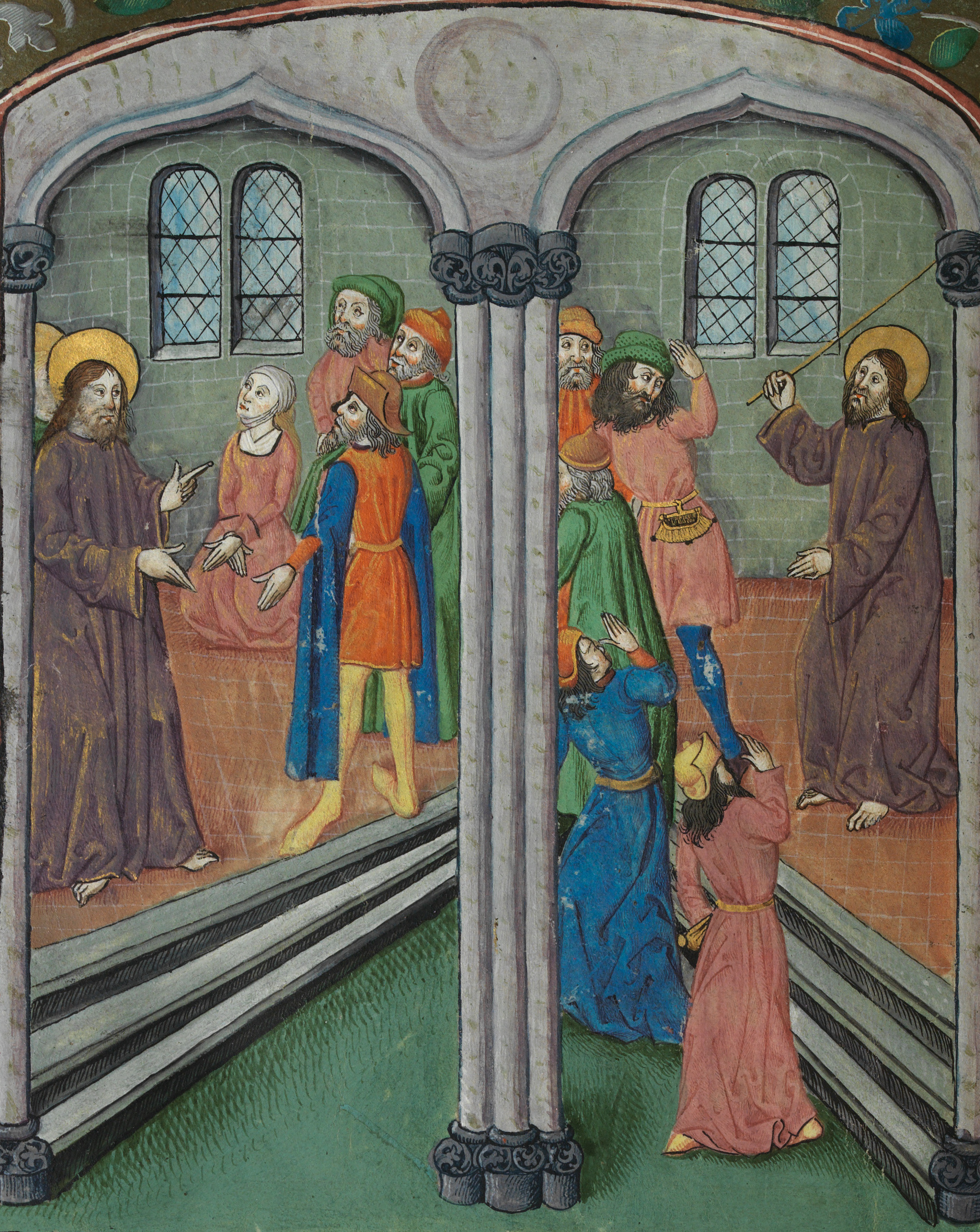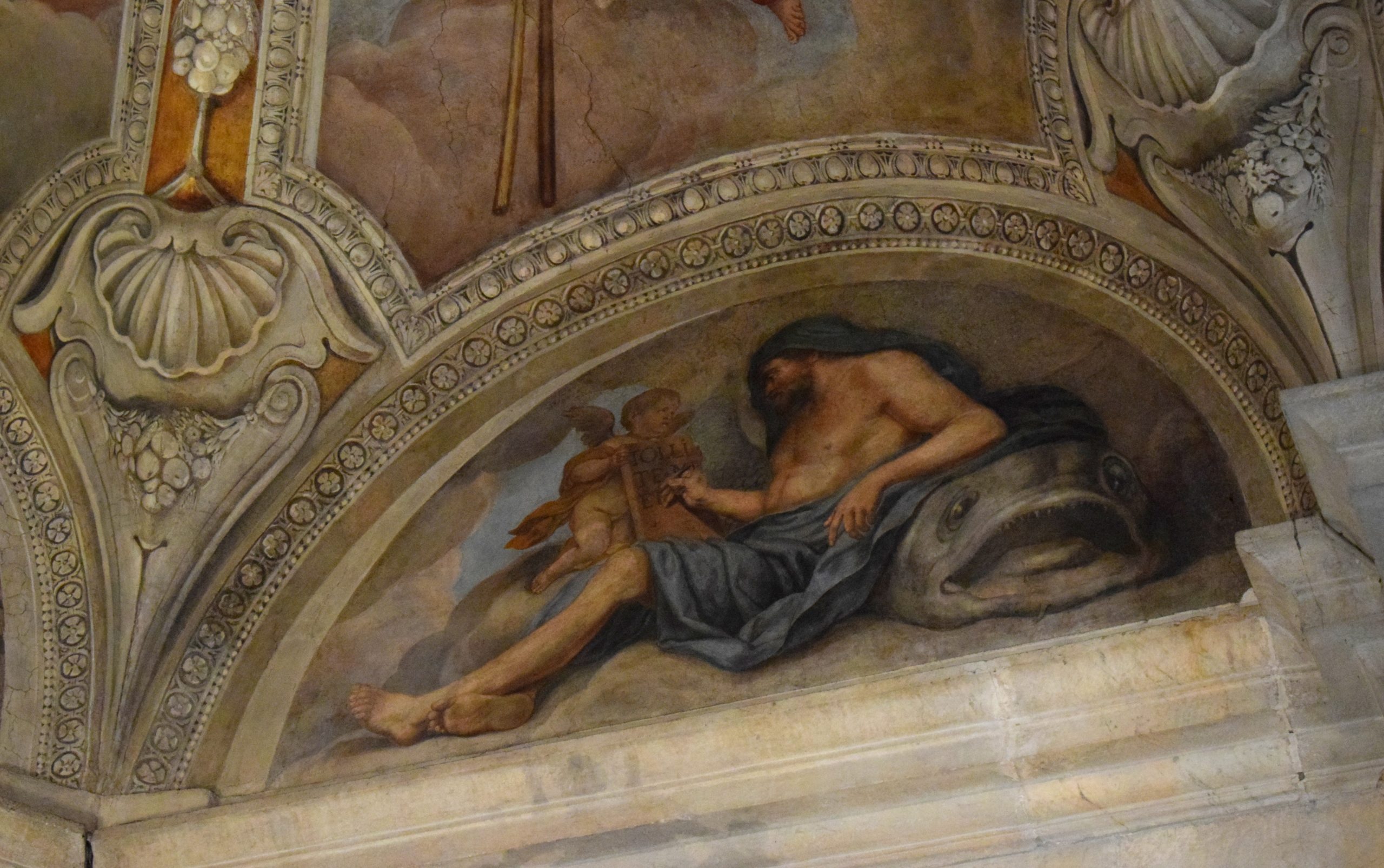
This coming Sunday is the Twenty-Fourth Sunday in Ordinary Time. To help you prepare to enter more deeply into Matthew 18:21–35 at worship, here is the passage and an excerpt from The Navarre Bible commentary series.
21 Then Peter came up and said to him, “Lord, how often shall my brother sin against me, and I forgive him? As many as seven times?” 22 Jesus said to him, “I do not say to you seven times, but seventy times seven.
23 “Therefore the kingdom of heaven may be compared to a king who wished to settle accounts with his servants. 24 When he began the reckoning, one was brought to him who owed him ten thousand talents; 25 and as he could not pay, his lord ordered him to be sold, with his wife and children and all that he had, and payment to be made. 26 So the servant fell on his knees, imploring him, ‘Lord, have patience with me, and I will pay you everything.’ 27 And out of pity for him the lord of that servant released him and forgave him the debt. 28 But that same servant, as he went out, came upon one of his fellow servants who owed him a hundred denarii; and seizing him by the throat he said, ‘Pay what you owe.’ 29 So his fellow servant fell down and pleaded with him, ‘Have patience with me, and I will pay you.’ 30 He refused and went and put him in prison till he should pay the debt. 31 When his fellow servants saw what had taken place, they were greatly distressed, and they went and reported to their lord all that had taken place. 32 Then his lord summoned him and said to him, ‘You wicked servant! I forgave you all that debt because you pleaded with me; 33 and should not you have had mercy on your fellow servant, as I had mercy on you?’ 34 And in anger his lord delivered him to the jailers, till he should pay all his debt. 35 So also my heavenly Father will do to every one of you, if you do not forgive your brother from your heart.” [1]
Forgiveness of injuries. Parable of the unforgiving servant
18:21–35. Peter’s question and particularly Jesus’ reply prescribe the spirit of understanding and mercy which should govern Christians’ behaviour.
In Hebrew the figure of seventy times seven means the same as “always” (cf. Gen 4:24): “Therefore, our Lord did not limit forgiveness to a fixed number, but declared that it must be continuous and forever” (St John Chrysostom, Hom. on St Matthew, 6). Here also we can see the contrast between man’s ungenerous, calculating approach to forgiveness, and God’s infinite mercy. The parable also clearly shows that we are totally in God’s debt. A talent was the equivalent of six thousand denarii, and a denarius a working man’s daily wage. Ten thousand talents, an enormous sum, gives us an idea of the immense value attaching to the pardon we receive from God. Overall, the parable teaches that we must always forgive our brothers, and must do so wholeheartedly.
“Force yourself, if necessary, always to forgive those who offend you, from the very first moment. For the greatest injury or offence that you can suffer from them is as nothing compared with what God has pardoned you” (St Josemaría Escrivá, The Way, 452).[2]
To dig deeper in your own devotional time, contemplate these verses in the Verbum Bible Study software. Or, if you don’t yet own it, request The Navarre Bible: Saint Matthew’s Gospel—available this month at a special discount.
[1] The Holy Bible. (2006). (Revised Standard Version; Second Catholic Edition, Mt 18:21–35). San Francisco: Ignatius Press.
[2] Saint Matthew’s Gospel. (2005). (p. 131). Dublin; New York: Four Courts Press; Scepter Publishers.





